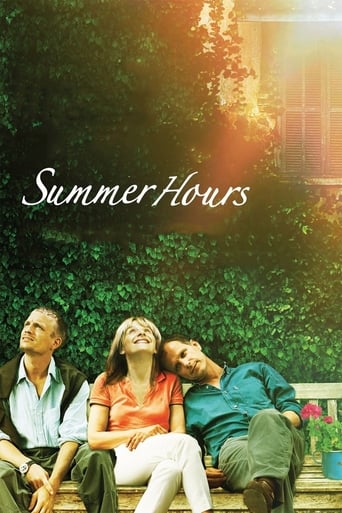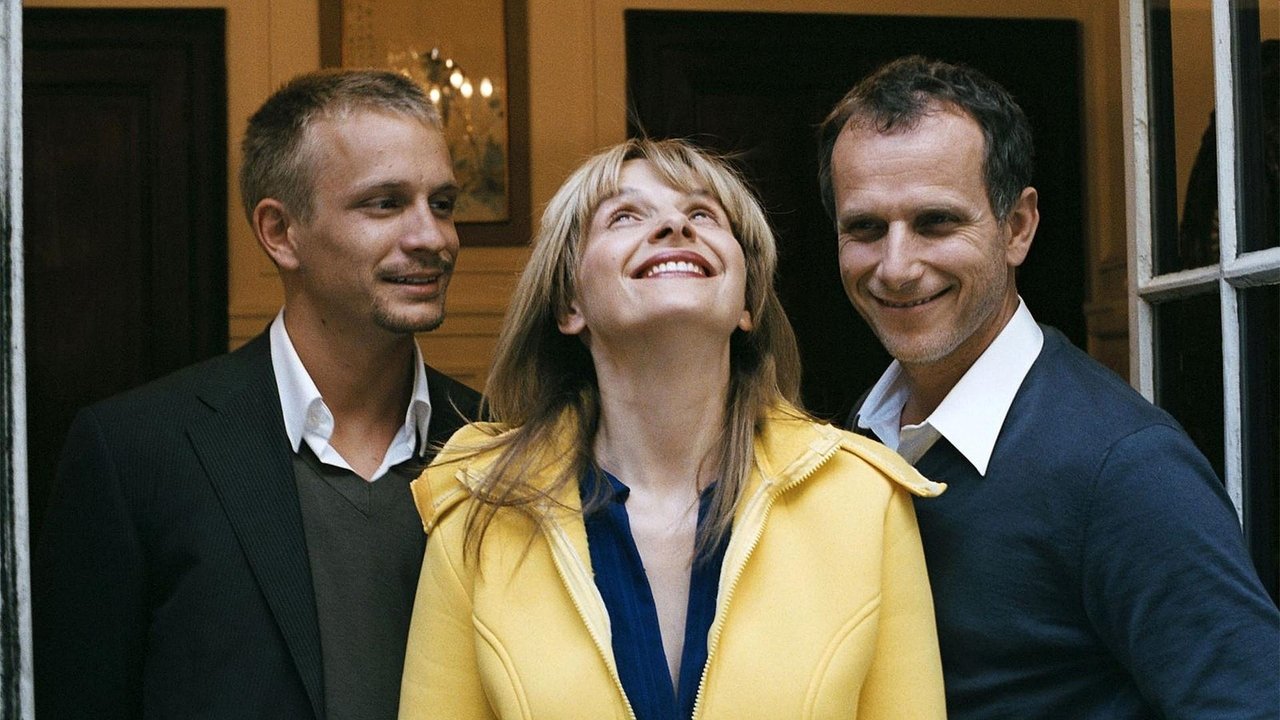johnnyboyz
We've sat through various characters contemplate decisions on screen throughout the history of cinema. Some have been more heart-breaking than others, others have been measured and contemplative – most have gone on to greatly affect these characters as well as those around them. We've witnessed the titular Umberto Domenico, in a 1950s Italian film entitled "Umberto D.", face a terrible predicament wherein he may or may not have to say goodbye to his faithful pet, whom he loves and has spent the best part of post-War Italy following him around as a lone companion. Others have been more reflective, and much more recent. We've observed a character very few people have anything bad to say about in Jules Winnfield, Samuel L. Jackson's African American hit-man in Tarantino's 1994 film Pulp Fiction, go through a dialogue driven sequence wherein Winnfield weighs up what he's doing in life through an absorbing exchange. We've seen characters snap, the likes of Bickle deciding to do what he did and we've seen decisions act as the centre piece of a film's drama as twelve angry men go through the motions to reach one of two conclusions: guilty, or not guilty. Now witness a film whose sole purpose is to revolve around rich, intelligent, successful middle aged people torn between keeping a bunch of artwork and remaining rich or selling it all and becoming that little bit richer. Witness Olivier Assayas' film. Witness a stain on French cinema. Witness entering a hundred minutes of cinematic Hell. Witness Summer Hours.Yes, it really is that bad; that trudging; that frustrating and that ill-conceived. It's not that Assayas doesn't have any material with which to work in Summer Hours; on the contrary, he has a large family beginning at the top with its eldest member, in Edith Scob's Hélène, which fritters down to the infant grandchildren by way of sons and daughters and their marital partners – it's just that he resists doing anything with them, and resists taking them anywhere. People SPEAK of travelling great distances, or going places, but little is actually ventured nor really learnt. We begin at an isolated summer house with each of these respective relatives enjoying the birthday festivities to that of Hélène, their host. This woman still lives in the old family home, and coming back for these summer functions is a home-coming for her now adult children. In the home is her vast collection of art and paintings, something she speaks of enthusiastically – for her sons and daughters, one assumes seeing them again brings back an odd nostalgia one can often have for art, perhaps films from one's childhood. Perhaps they don't, the idea that forms of art can induce these sorts of responses regardless of its form isn't explored.Assayas wastes away a solid forty five or so minutes during this opening, and how one could claim that he has done anything else other than waste our time would be extraordinary. These people sit around, they talk; they eat; they loiter with their life partners; they smoke – we can only snooze. It is quite extraordinary, in fact, just how little happens with so many people on screen – there is no narrative, no attention to character and the family all seem to get along with each other quite well. I think a point is made as to how spread out Hélène's offspring are, in terms of what they do and where they work - Juliette Binoche's Adrienne works in America for a Japanese company, while another son has work opportunities in China on the horizon which will result in holidays of what's he doing now, only in the likes of Bali. Thus, the juxtaposition between a more modern world, where no one really needs to belong anywhere; borders become greyer by the day and nationalities of companies, people and where they're based might as well be anywhere, with little old Hélène in her old manor house from a time that was simpler and more grounded, is made.Again, with little exploration – why should we care? It has these pretensions to be about changing times but in essence, just comes off as a total bore that's grossly misjudged in its application of this grounded approach and desire to spread out the character study to as many people of this family as possible. The event kick starting whatever study or chain of events Assayas thinks he's telling arrives with Hélène's death, something that instigates talk between the siblings of selling the old family home and the treasures therein; a decision to sell off these people's childhood at a time in their lives when they've already started families; moved abroad and riddled themselves of their infant-hood anyway. What little conflict there is arrives in the form of Éloïse (Sadoyan), a younger sister to the bulk of the kids who doesn't have as much of an input and would be truly victimised should the property be sold. It is quite remarkable that the film's central dilemma sees these people bickering with one another over whether earning extraordinary amounts of money through the selling of these things, or continuing to live the affluent lifestyle they have anyway, is at the core of proceedings. To say it is monumentally misjudged is an understatement; to say that it's a mite offensive would be to tell the truth, so say that a film is offensive AND boring would be to accuse a project of perpetrating a crime against cinema. Unfortunately, Assayas has done exactly that and bestowed upon us a crime for which few punishments would be enough.
clotblaster
I love Juliette Binoche's acting, but she can't save a film from its self-destructive implosion. French viewers and critics (non-French Franco-philes) too often use the crutch of contrasting negatively American films with French films. French films have depth and great acting ad nauseam. I have seen many, many French films over the years and even the best (I read reviews before viewing them) are usually just above average, same as America or British films. Ironically, one of Binoche's best performances is in the American film, Dan in Real Life. She is also quite good in the adventure film The Horseman on the Roof, a very, very good film. Anyway, Summer Hours has a Bergman feel, but none of his story telling ability and very little of the performances he elicits from actors and actresses. Not a winning film.
Niklas Pivic
This is quite the solemn experience, much like Antonioni's "L'Avventura". A family gathers around the grand-mère of the family in the country, the keeper of artwork by a great, late artist. She keeps telling her children what should go where once she's gone, too. The family image is special, and the direction is sublime in the extreme; where my Hollywood sense of watching films is painfully blown-up, I felt that this film told it like it should be, in a way; it took me on a journey. I could not help but feel that part of it was filled with symbolism and free will, real characters and a sense of laissez-faire. The direction is so very simple, yet I think it's sleight of hand; it's probably really hard work behind this. All in all: beautiful.
Olivia Temple
An idyllic French country house and garden, summer, a family gathering with several generations eating and playing al fresco. The occasion - the mother's 75th birthday. Beautiful, elegant and stylish, Edith Scob masterfully manages to show us the vivacious and sophisticated woman she once was as well as the elderly widow she now is, facing her own mortality, without doing a thing except being there - the matriarch whose memories are her expression and her purpose. Her preoccupation is what will become of the house and its contents after her death? Her uncle, whom she adored, was a famous artist and his collection of furniture, glass and paintings, including two Corot's, have huge emotional value, as well as being valuable collectors items and museum pieces. Her three modern grown up children each have their own busy lives and only her eldest son, played by Charles Berling, has the time and nostalgia necessary to contemplate keeping the house and its content for future generations. A subtle lesson in how art and beauty outlive us all in this family tale of death and inheritance. There is no drama, no quarreling, just the unspoken sadness at the inevitability of one era ending and another beginning.The film was made in co-operation with the Musee d'Orsay and the Louvre and the characters who come to the house to assess the contents are all real museum personnel. There is some fine acting from Juliette Binoche as the distracted slightly ruthless daughter, unusually blonde, and a poignant performance from Isabelle Sadoyan as the housekeeper, Eloise, whose involvement with the house over many years was such that she barely noticed the works of art as such, and has the healthiest attitude of all to precious objects.This is not just an enchanting glimpse into the lives of others but also a philosophical tale.


 AD
AD



